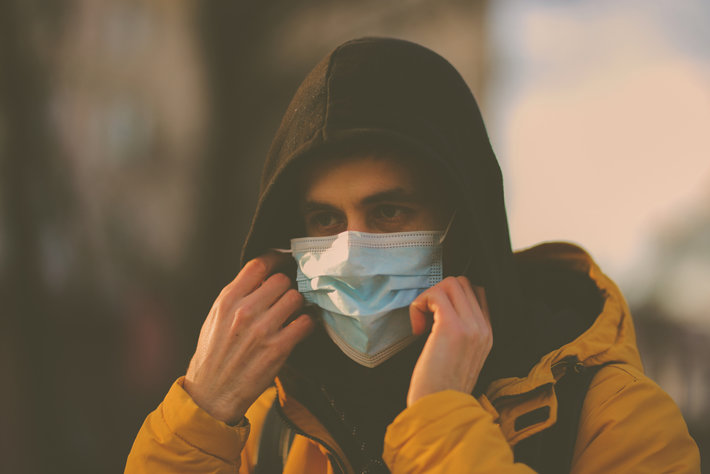Drug Abuse Lowers the Body’s Immune System and Makes Addicts More Susceptible to Viruses

When we hear about the harmful effects of drug use, we hear things like “drug overdose,” “drug crime,” “drug poisonings,” “relapse,” “addiction,” etc. And all of those are serious harms that come from using drugs.
But one of the other side effects not often discussed is the fact that drug use lowers the user’s immune system. When people use drugs, their bodies suffer an attack on their immune defenses due in part to the body’s efforts at combating a foreign drug substance. And in a time when each year seems to bring a new virus or flu crisis, a compromised immune system is concerning and dangerous.
It’s essential to understand how drug addiction damages the immune system. And once that is understood, it is vital to use this information as yet another reason why drug addicts must get treatment as soon as possible. If the drugs themselves don’t lead to death, a virus or disease might instead.
Drug Use and Immune Systems
Though it is not often reported on, there is a fair amount of scientific data that draws a correlation between substance abuse and a weakened or compromised immune system. And the logic behind this conclusion is pretty sound all by itself. A drug is a dangerous, chemically harmful, foreign substance. When a user injects, smokes, snorts, or consumes drugs; the body must focus on coping with those foreign chemicals. The less the body can focus on other tasks, such as staving off illness, the more exposed and weakened the body will be.
And the science backs up this notion. For example, one study points out how the chemicals in cocaine dramatically alter both the numbers and the genetic machinery of an essential immune organ called the thymus gland. So not only is cocaine inherently destructive and damaging to the heart, lungs, brain, central nervous system, and other organs and functions, but cocaine also has a directly harmful effect on the immune system.

In another paper, the U.S. Department of Veterans Affairs talks about how substance abuse can damage the immune system. Alcohol consumption makes it more difficult to fight off infection. Marijuana weakens the lungs’ defenses, making it more likely for users to contract lung infections like pneumonia. Meth leaves the body dehydrated, exhausted, worn down, and deprived of essential nutrients that the body needs to fight infection. The list goes on.
Further research shows that virtually all mind-altering drugs have some degree of “immunomodulatory” effects. What that means is drugs like opiate pills, cocaine, meth, heroin, alcohol, marijuana, and many others influence the body’s immune system and prevent it from performing its essential functions. Taking drugs has the effect of reducing or hampering the body’s immune system, which in turn makes the individual more prone to diseases and other forms of illness.
The effects of drug use on the immune system are not limited to street drugs and illegal substances. In fact, there is a considerable amount of data that suggests that many pharmaceutical medicines have immunomodulatory effects. Some pharmaceutical drugs are supposed to influence the immune system, as in the case of medicines that help treat autoimmune disease. But other prescription drugs have the harmful side effect of lowering the patient’s immune system rather than boosting it.
Many potentially addictive pharmaceutical drugs (like opiate painkillers) have this adverse effect of potentially interfering with the user’s immune system. Just generic morphine by itself can decrease the effectiveness of several functions of the immune system to the point where the patient is at risk of contracting illnesses and cancers that his body would otherwise be better equipped in protecting him against.
Why Families Need to Get Help Now
The more time one spends using drugs, the more danger and the more harm he or she presents to themselves and others. Drug use truly is a dwindling spiral, a vicious crisis of the body and mind that only gets worse if left untreated. Drug addiction can be fatal. When people die from drug use, overdoses are almost always blamed as being the cause of death. But weakened immune systems are a factor too. When an addict dies from pneumonia, was it pneumonia that killed him? Or was it the drug that compromised his immune system and made him more likely to get sick in the first place?
Now that new viruses are sweeping the nation, those with compromised immune systems are put at risk. And as drug use effectively robs the user of his or her natural ability to fight off infection, drug addicts are at increased risk of falling very ill. The added risk of contracting illnesses, viral infections, cases of flu, fevers, and other diseases serves as yet another reason to do everything you can to help your loved one get clean. It’s so crucial that you do not delay and that you do not let your loved one convince you that they don’t “need” help, that they have everything under control.
If you have a family member or loved one who is using drugs, do your best to help them into a residential drug treatment center. Don’t let them spend another day struggling with addiction, because each day they spend using drugs could be their last. Please contact a treatment center today.
Sources:
- https://www.sciencedaily.com/releases/1997/04/970423114328.htm
- https://www.hiv.va.gov/patient/daily/alcohol-drugs/immune-system.asp
- https://academic.oup.com/femspd/article/47/3/330/506577
- https://www.ncbi.nlm.nih.gov/pmc/articles/PMC4706827/
- https://www.ncbi.nlm.nih.gov/pubmed/16


 ®
®